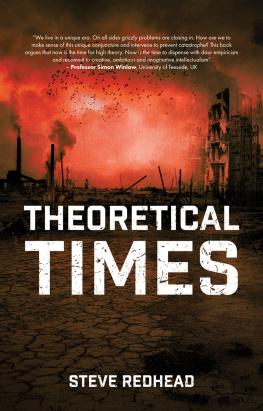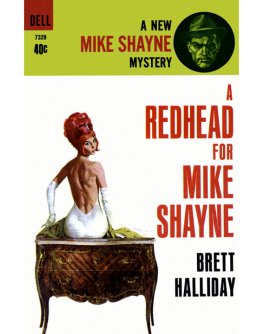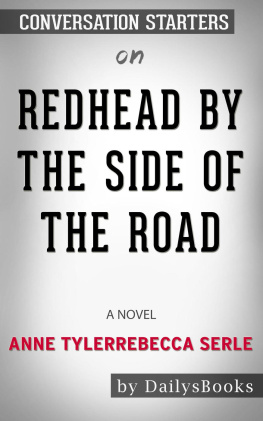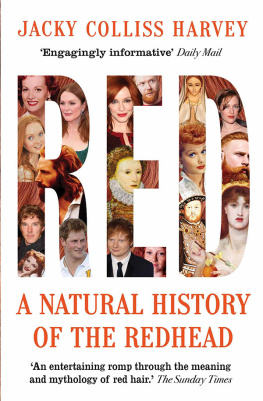Steve Redhead - Theoretical Times
Here you can read online Steve Redhead - Theoretical Times full text of the book (entire story) in english for free. Download pdf and epub, get meaning, cover and reviews about this ebook. year: 2017, publisher: Emerald Publishing Limited, genre: Science / Politics. Description of the work, (preface) as well as reviews are available. Best literature library LitArk.com created for fans of good reading and offers a wide selection of genres:
Romance novel
Science fiction
Adventure
Detective
Science
History
Home and family
Prose
Art
Politics
Computer
Non-fiction
Religion
Business
Children
Humor
Choose a favorite category and find really read worthwhile books. Enjoy immersion in the world of imagination, feel the emotions of the characters or learn something new for yourself, make an fascinating discovery.
- Book:Theoretical Times
- Author:
- Publisher:Emerald Publishing Limited
- Genre:
- Year:2017
- Rating:4 / 5
- Favourites:Add to favourites
- Your mark:
- 80
- 1
- 2
- 3
- 4
- 5
Theoretical Times: summary, description and annotation
We offer to read an annotation, description, summary or preface (depends on what the author of the book "Theoretical Times" wrote himself). If you haven't found the necessary information about the book — write in the comments, we will try to find it.
Theoretical Times — read online for free the complete book (whole text) full work
Below is the text of the book, divided by pages. System saving the place of the last page read, allows you to conveniently read the book "Theoretical Times" online for free, without having to search again every time where you left off. Put a bookmark, and you can go to the page where you finished reading at any time.
Font size:
Interval:
Bookmark:
THEORETICAL TIMES
BY
STEVE REDHEAD
Flinders University, Australia

United Kingdom North America Japan
India Malaysia China
Emerald Publishing Limited
Howard House, Wagon Lane, Bingley BD16 1WA, UK
First edition 2018
Copyright Steve Redhead, 2018
Reprints and permissions service
Contact:
No part of this book may be reproduced, stored in a retrieval system, transmitted in any form or by any means electronic, mechanical, photocopying, recording or otherwise without either the prior written permission of the publisher or a licence permitting restricted copying issued in the UK by The Copyright Licensing Agency and in the USA by The Copyright Clearance Center. Any opinions expressed in the chapters are those of the authors. Whilst Emerald makes every effort to ensure the quality and accuracy of its content, Emerald makes no representation implied or otherwise, as to the chapters suitability and application and disclaims any warranties, express or implied, to their use.
British Library Cataloguing in Publication Data
A catalogue record for this book is available from the British Library
ISBN: 978-1-78714-669-3 (Print)
ISBN: 978-1-78714-668-6 (Online)
ISBN: 978-1-78743-004-4 (Epub)
 |  |
Football and Accelerated Culture: This Modern Sporting Life
We Have Never Been Postmodern: Theory at the Speed of Light
The Jean Baudrillard Reader
Relocating the Leisure Society: Media, Consumption and Spaces (with Jayne Caudwell and Alan Tomlinson)
The Paul Virilio Reader
Paul Virilio: Theorist for an Accelerated Culture
Repetitive Beat Generation
Subculture to Clubcultures: An Introduction to Popular Cultural Studies
The Clubcultures Reader: Readings in Popular Cultural Studies (with Derek Wynne and Justin OConnor)
Post-Fandom and the Millennial Blues: The Transformation of Soccer Culture
Unpopular Cultures: The Birth of Law and Popular Culture
Rave Off: Politics and Deviance in Contemporary Youth Culture
The Passion and the Fashion: Football Fandom in the New Europe
Football with Attitude
The End-of-the-Century Party
Sing When Youre Winning: The Last Football Book
This book is dedicated to the memory of my grandfathers.
Thanks to my wife Professor Tara Brabazon for all her love, brilliance, companionship and inspiration.
I would like also to thank all the people around the world who have given me very helpful feedback on ideas and concepts from the books which were also previously trailed in personal website blog posts, Facebook and Linkedin messages, Skype conversations, tweets, podcasts, seminars and vodcasts as well as multiple essays for journals and websites.
Finally, thanks to my editor Philippa Grand and all at Emerald Publishing.
I really think we are living in very dangerous, interesting times Today is the time for theory There is hard work to be done. It is a unique task.
Slavoj iek
This book is a mash up. It mixes and remixes high theory and raw realism, post-TV popular culture and contemporary global politics. Raw realism and high theory was how my previous book (Redhead, 2017) was described by a reviewer for Routledge, the eminent ultra-realist criminologist Steve Hall, and the phrase stands as an emblem for what we should aim at in critical theory work in the twentieth-first century landscape. Join me in this book on the roller coaster that is theoretical times adventures in theory, and the politics of theory, today. Remember, however bleak our contemporary world is looking at any one time, theory is able to trump it. As we shall see, one of the theorists featured in this book, the late Jean Baudrillard, places great store by theory being set against reality, turning it on and against the Real. Theoretical times denotes theory as an arena of struggle. Theory is a war zone. Theory will tear you apart.
This book began as a Theoretical Times blog on my personal website and it then expanded to myriad vodcasts and podcasts which recorded its progress, and its lack, as it went along. The main podcasts and vodcasts are listed at the back of the book, but there are many more being produced as part of an expanding social media project on theoretical times with many hundreds of thousands of downloads. The book was written from deep inside South Australia, staring out across the Ocean looking in vain for the next stop to Antarctica, generating the feeling, as the text was uploaded, of falling off the edge of the planet. The idea was followed up by my concept of claustropolitanism much discussed in this book. In the middle of the writing of the book the whole of the state of South Australia was plunged into darkness for many hours as a result of widespread power failure, reminiscent of the kind of accident which Paul Virilio conjures up and which I have written about (Redhead, 2005) as an inevitable part of our accelerated capitalist culture. Furthermore, a potential nuclear conflict, accidental or otherwise, between the United States and a foreign power, as portrayed in The Day After, an American-made TV movie first broadcast in 1983, seems closer than at any time since the early 1980s and the last gasps of the Cold War. Stop the world, I want to get off.
I begin this introduction with the themes and tropes related to theoretical times. The book as a whole depends on a setting of the global scene in terms of neoliberalism, globalisation and digitisation, and a recognition of the widespread rise of the right (Winlow, Hall, & Treadwell, 2016) as a backdrop to the need for new post-disciplinary theory and a new politics of theory. This rise of the right has been developing for decades, more or less since the late 1960s and early 1970s when a similar, parallel process of the decline of the left began. Theoretical Times is a book to counter the frequently anti-intellectual and populist times of today where, otherwise disengaged from new media and social media, and any kind of book learning, a President of the United States rules by issuing demagogic tweets over the heads of the media, Congress and the judiciary and fails to make the transition from Reality TV to reality. Post-truth becomes, in 2016 and 2017, a description of Orwellian proportions as lying, denying and inventing stories seems, once again recalling the Watergate era, a daily occurrence in government. The far right US website Breitbart News (formerly run by Trump adviser in the White House Steve Bannon) openly celebrates Donald Trumps ascension to the US Presidency as a revolution from the right and, moreover, the revolution that no one expected (Pollak & Schweikart, 2017), inserting an accidental dictator into the Presidency without a shot being fired. Since Donald Trumps inauguration in January 2017 the sales of George Orwells novel Nineteen Eighty-Four, originally written in 1948, increased by a previously unheard of number. Globalisation, digitisation and neo-liberalism have dominated our world for decades, but the election of Donald Trump as President of the United States along with elements of a far right administration inside the White House (Pollak & Schweikart, 2017) with access to the worlds largest military and huge nuclear arsenal, and the Brexit referendum decision in the United Kingdom to leave the European Union (Ashcroft & Culwick, 2016; Oliver, 2016, Shipman, 2016), have combined to become a new mini watershed for our times. The millions protesting round the world at every twist and turn in opposition, horror, frustration, paranoia and hatred in what Pankaj Mishra (2017) calls an age of anger have heralded an era of different priorities, full of fear and danger, but also possibility and promise for a renewal of the global left. Make no mistake, the rise of the right has been accompanied by, even caused by, the decline of the left. There is now visible across the globe a phenomenon that the pioneer of cultural studies Stuart Hall (2016, 2017b) once called the great moving right show (Hall, 1988, 2017a, pp. 172186), a moniker which was misguided at the time proclaiming an authoritarian populism that never really existed but today has a far more far-reaching global resonance. In some senses all we are left with is what Slavoj iek (2017b) labels as a hopelessness from which it will take real and organised courage to escape. Refugee and migrant crises, a new world order of global jihad and security services false flags, a hugely weakened left all add up to overwhelming odds for a reconstruction of the left. We all now face new dark ages and globalised trouble in paradise claims iek (2014a) as his friend and colleague in philosophy and political economy Alain Badiou (2017a, pp. 3160) glimpses contradictory darkness in these times of the dialectics of black. As we shall see in this book dialectics are back, and we are in the dialectics of black. Badiou, now in his eighties, and iek, now in his late sixties, are pivotal figures in this book which follows the contours of the transcendental materialism their followers believe to be the mature and lasting result of their theoretical and political work over the last few decades. These contemporary currents in the wake of the still evolving global financial crisis of 2007 and 2008 and unforseen earth moving events like the UK referendum and the coup dtat of Trumpism in the White House (Johnson, 2016; Pollak & Schweikart, 2017) are troubling, perplexing and very, very frightening for the masses of the populations all around the world already suffering from a de-industrialising global poverty and seemingly endless war.
Font size:
Interval:
Bookmark:
Similar books «Theoretical Times»
Look at similar books to Theoretical Times. We have selected literature similar in name and meaning in the hope of providing readers with more options to find new, interesting, not yet read works.
Discussion, reviews of the book Theoretical Times and just readers' own opinions. Leave your comments, write what you think about the work, its meaning or the main characters. Specify what exactly you liked and what you didn't like, and why you think so.











